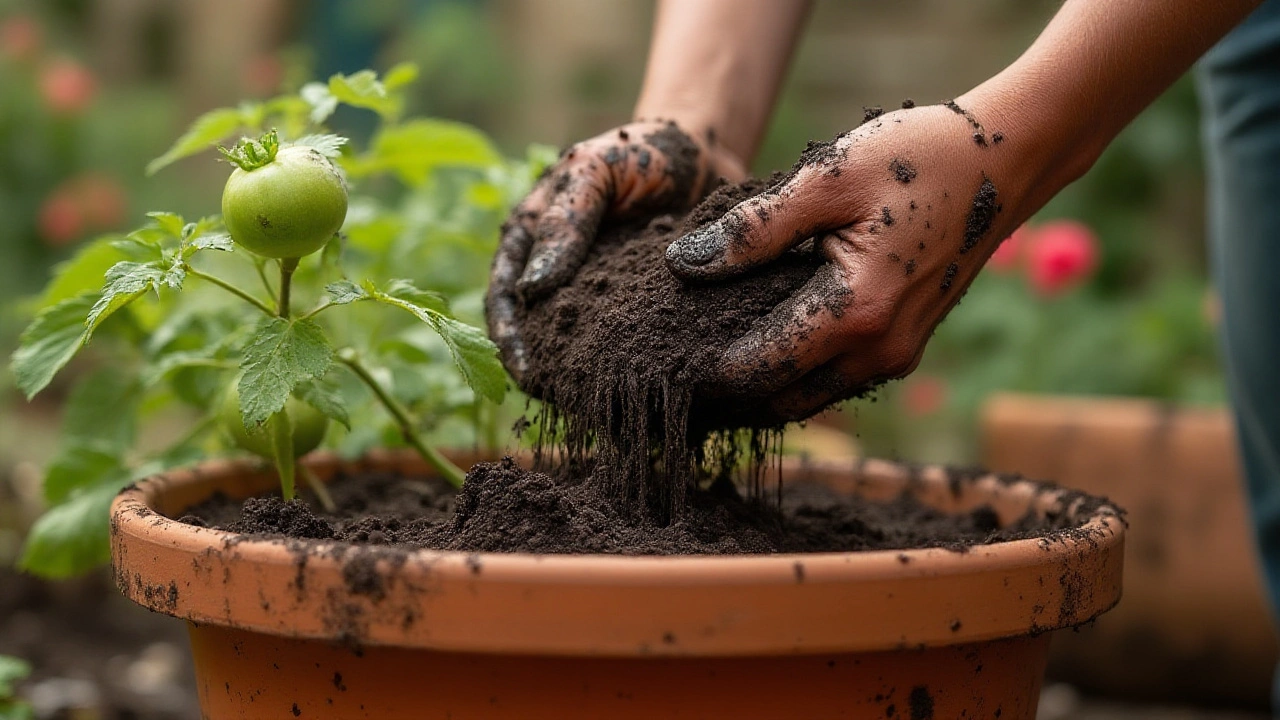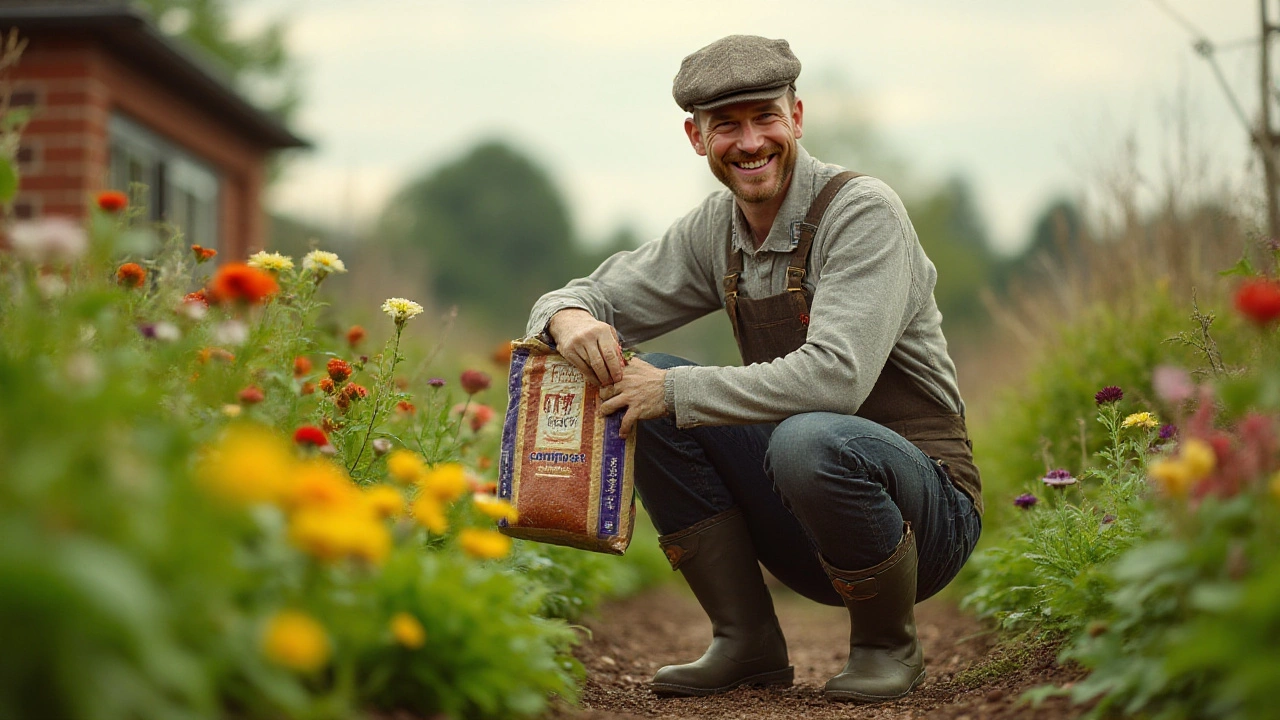If you’ve ever browsed through Aldi’s aisles and spotted their budget-friendly compost, you know how tempting it is to toss a couple of bags into your cart. After all, Aldi has a habit of surprising us with crazy-good deals. But does saving money on compost mean compromising on your plants’ health—or is Aldi compost actually a smart pick for gardeners who want lush growth without breaking the bank?
What’s in Aldi Compost—And Why It Matters
The makeup of any compost bag is a mixed bag. Aldi’s compost products—like their “Multi-Purpose Compost” or “Growmoor Multi-Purpose Compost” sold in UK stores—are usually peat-reduced mixes. Most of the time, you’ll find a blend of green waste, a bit of peat, recycled wood fibers, and sometimes added nutrients like nitrogen, phosphorus, and potassium. On the bag, you might see NPK numbers like 12-14-24. These numbers tell you the ratios of the primary plant nutrients inside.
Here’s the scoop: good compost is more than a soft, dark bulk addition. Texture, water retention, and nutrient content turn compost into superfood for your soil. Aldi compost tends to be light and airy—that’s great for containers and seed starting, but don’t expect a super-rich mix you’d find in higher-end brands that gardeners rave about on forums. Still, you’re not getting sawdust or clods of bark either (unlike some discount composts that end up as landfill in disguise).
People often ask, “Is it organic?” Aldi’s main products aren’t certified organic. Some years, seasonal organic blends appear, but they fly off shelves fast. If organic gardening is your thing, double-check labels before buying. Consistency can also vary between batches. Aldi sources from regional suppliers, so what you get in Manchester might look, smell, or feel a bit different than what’s sold in Cornwall. My own hands-on with a few 40-litre bags this spring found plenty of brown, crumbly compost—mixed with noticeable fibrous chunks but nothing that made me wince.
| Compost Feature | Aldi Multi-Purpose | Premium Brand (e.g., Miracle-Gro) |
|---|---|---|
| Peat Content | Reduced/Low | Moderate-High |
| Certifications | None/Occasional Organic versions | Often Organic, Peat-Free versions |
| Texture | Light, sometimes fibrous | Smooth, fine |
| Nutrient Content (NPK avg.) | 12-14-24 | Varies, often 14-10-27 |
| Bag Price (40L) | £3-4 | £6-9 |
How Aldi Compost Performs With Garden Plants
This is the bit most folks care about. Can you really grow tomatoes, sunflowers, or houseplants that look drool-worthy with Aldi’s stuff? Here’s what you should expect.
In side-by-side testing—where the same seeds or plug plants go into pots with Aldi compost versus a premium compost—there’s usually not a massive difference in the first few weeks. Aldi’s mix kicks off plant growth just fine, partly because it’s fresh and, by design, delivers starter nutrients. For quick crops (think lettuce, radish, marigolds), you can barely tell the difference.
But what’s down the road? Aldi compost, like most basic multi-purpose composts, might run out of steam after about five or six weeks, especially in containers. That’s normal—even pricier composts ask for a top-up with liquid feed or slow-release fertilizer after a month or two. With Aldi compost, you’ll spot signs: leaves pale a bit earlier, and growth can plateau unless you stay on top of feeding.
Roots have plenty of space to breathe, but Aldi compost’s lighter texture sometimes means it dries out faster in summer. That’s not a deal-breaker. Just water a bit more often (or mulch the surface). Fluffy compost also means you won’t have soggy, sluggish drainage, which is good for most indoor and outdoor plants.
For picky plants like blueberries that hate alkaline soils—avoid Aldi compost unless it says “Ericaceous.” Their regular blends hover around pH 6.0-6.5, which suits most veggies, annuals, and perennials just fine.
In the real world, my dwarf dahlias in Aldi compost bloomed just as brilliantly as those in posher compost, but I did notice the Aldi mix started to compact a bit by late summer. Still, a quick fork-around fluffed it right up. Snowball, my cat, approved of the soft texture for napping (bonus tip: if you catch your pets digging, a sprinkle of citrus peels keeps them away).

Comparing Aldi Compost With Premium Alternatives
It’s only fair to measure Aldi compost against the usual suspects: Miracle-Gro, Westland, Levington, and B&Q’s Verve. Here’s where Aldi wins and where it stumbles.
- Price: Aldi almost always undercuts on price per litre. It’s unbeatable for large jobs—filling new raised beds, topping up borders, or starting a patio full of containers. Less pain at checkout means more budget for plants or tools.
- Consistency: Aldi compost can be hit-or-miss from year to year. Some bags are finely milled, others a bit coarser. That’s par for the course at this price. With bagged composts at £3, a few rough bits are forgivable, but premium brands deliver smoother blends nearly 100% of the time.
- Performance: As mentioned, performance is close for short-term crops and not-too-demanding plants. For hungry crops (tomatoes, courgettes, peppers) or when potting up big tropical houseplants, you’re better off mixing in extra slow-release fertilizer or a handful of vermicompost for staying power.
- Peat use: Aldi’s cheap compost is usually “peat-reduced,” a nod to eco-friendliness, but not up to scratch for gardeners looking to go 100% peat-free. Big names now offer totally peat-free options, which is something to think about if you’re trying to garden greener.
- Bag Size: You’ll usually find Aldi’s compost sold in smaller bags. No giant 80-litre options. But, they’re light enough to carry without risking a back spasm in the parking lot.
Still, in a head-to-head growth trial I cooked up in the shed—sunflowers in Aldi compost versus a Westland peat-free bag—the Aldi flowers grew a hair shorter, but nobody would notice unless you had a tape measure out. That’s a pretty decent result.
Gardeners have posted on forums like GrowYourOwn and Reddit that Aldi compost does the job, especially if you fluff it up and aren’t expecting miracles. Complaints usually relate to the odd plastic bit found now and then (a common fault with recycled green waste composts), but I haven’t spotted anything scandalous myself. If you see lots of rubbish or big wood chunks, return the bag—that’s a quality control slip, not the norm.
Is Aldi Compost the Best Choice for You? Tips for Getting the Most Out of It
So, should you use Aldi compost? If you’re on a budget, starting lots of plants, or adding bulk to tired soil, Aldi compost is a savvy option. But you need to tweak how you use it for the best results. Here’s how to stretch its benefits:
- Mix it up: Blend Aldi compost with your own garden compost, manure, or vermiculite to boost nutrients and structure. A 50/50 mix with homemade compost takes it up a notch.
- Feed your plants: After a month, start liquid feeding, especially with vegetables and flowers in containers. Aldi compost won’t fuel hungry plants through the whole season alone.
- Fluff and mulch: Break up any clumps and use a layer of mulch (grass clippings, bark, or even spare compost) to keep moisture in and weeds out.
- Check for lumps/plastic: Tip compost into a trug or wheelbarrow before planting. Fish out any bits that don’t belong. It’s quick and keeps roots happy.
- Don’t use for cuttings: Aldi’s regular compost is too rich and uneven for delicate plant cuttings. Choose a fine seed/propagating mix for those jobs.
- Store with care: Keep bags sealed and out of the rain. Wet or dry compost can lose nutrients, dry out, or become a slug hotel.
- Pets and kids: Always wash up after using any compost, Aldi’s included. Rare but worth saying—compost can carry fungi or parasites. Cover new beds or containers if your cat thinks it’s a luxury litter box.
- Use fresh: Aldi compost works best the season you buy it. Don’t stash bags for a year out back; the texture goes off and nutrients fade.
Just remember, the heart of successful gardening isn’t a magic compost bag—it’s a watchful eye on your plants, a touch of patience, and not being afraid to try your own experiments. Aldi compost won’t transform bad soil into Eden overnight, but it won’t ruin your garden either (unless you expect it to do all the work).
If you spot Aldi’s organic compost special, grab it before it’s gone. For day-to-day gardening, though, their budget compost is a solid “yes” for savvy gardeners with reasonable expectations. Like Snowball always manages to prove—sometimes, the simplest things are the most satisfying, as long as you know how to use them right.
